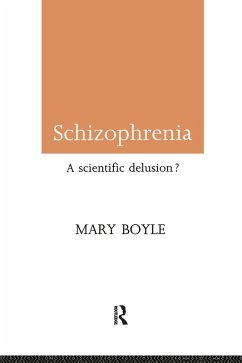The idea of "schizophrenia" as a disease has become profoundly influential both within the medical profession and amongst the general public. This book challenges such ideas by offering a detailed critique of the origins and development of the concept and diagnosis of schizophrenia.
Dieser Download kann aus rechtlichen Gründen nur mit Rechnungsadresse in A, B, BG, CY, CZ, D, DK, EW, E, FIN, F, GR, HR, H, IRL, I, LT, L, LR, M, NL, PL, P, R, S, SLO, SK ausgeliefert werden.


